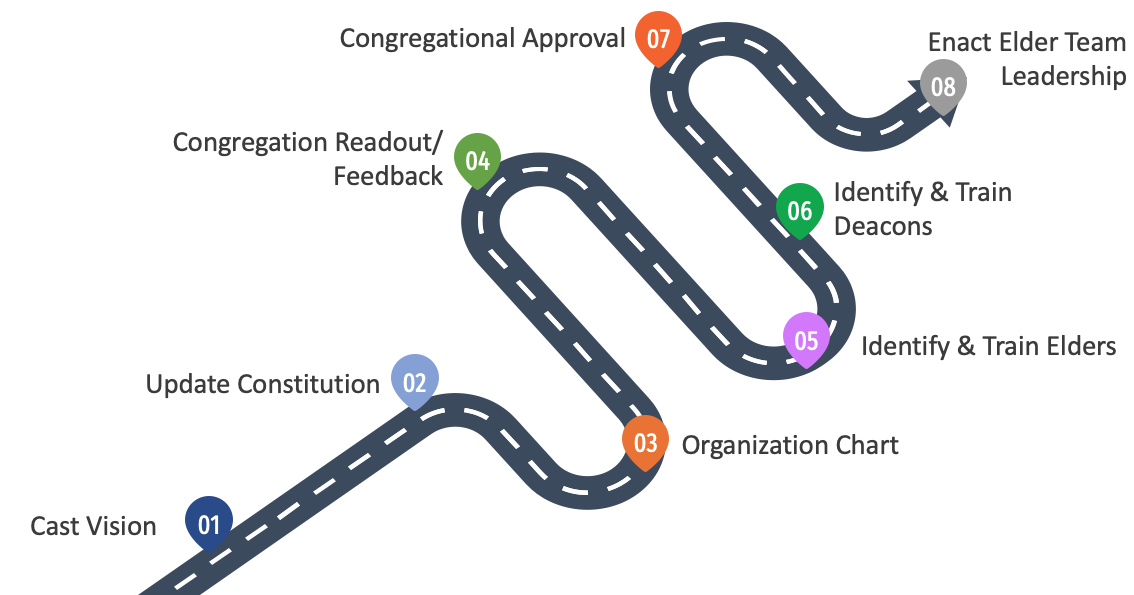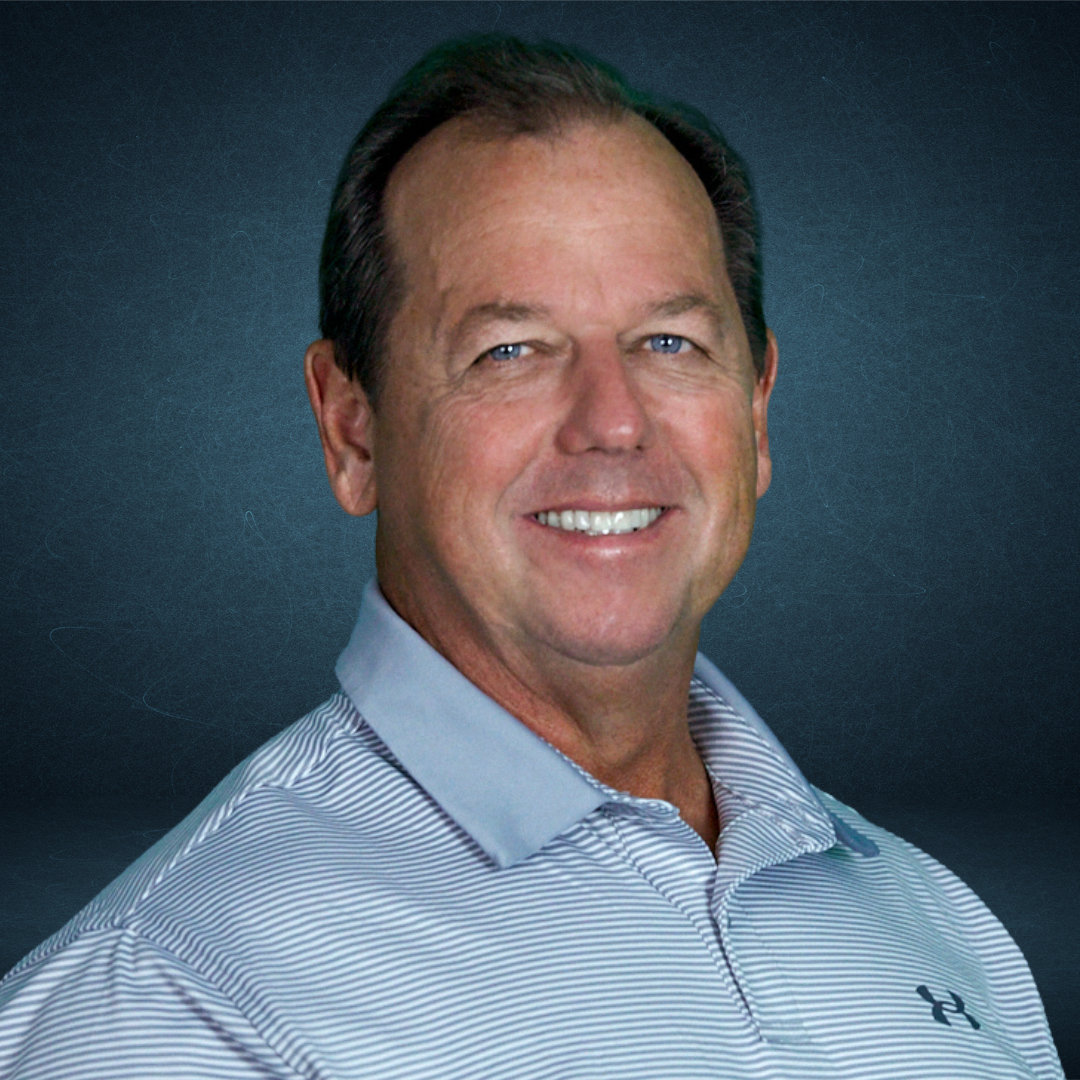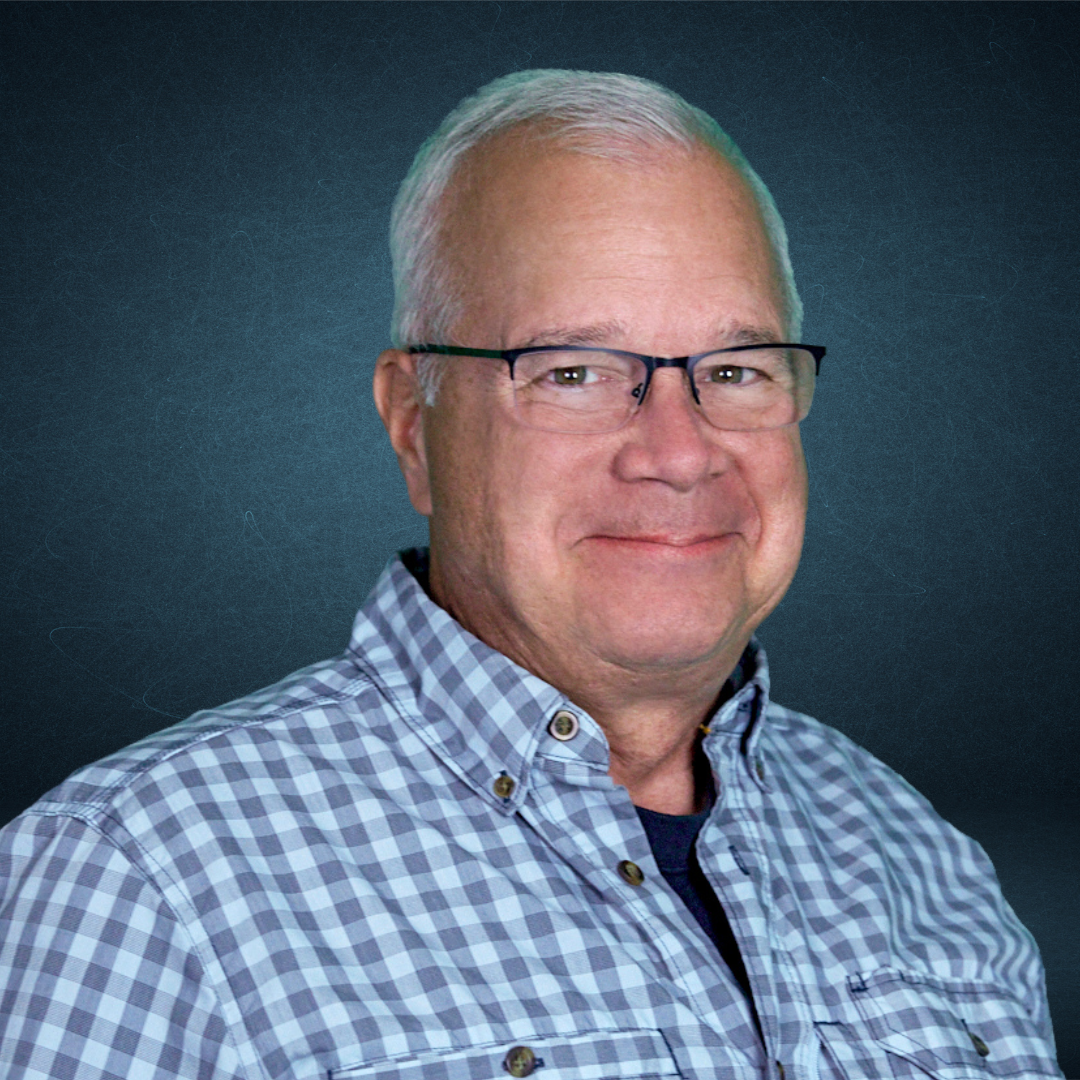Explore the deep dive series into biblical church leadership and learn about the roles and impact of eldership in guiding the body of believers towards spiritual and relational health.
Last Sunday (May 19, 2024), we voted overwhelmingly to transition to an Elder-led Church. Thank you to the many people who helped in this process, and we pray that God will continue to bless and enrich Northampton for years to come. We would also like to acknowledge our first Elders who have been approved and accredited for the position: John Fisher, Jeff Woods and Daniel Zinzow. We are planning an installation of Elders in the coming weeks to officially install them.

The Elder Roadmap helps show the steps to take to transition Northampton Bible Church from a Board led model to an Elder Team Leadership Model. An Eldership Team Leadership is one in which shepherding is done by a team of Elders, which includes Pastors and lay Elders.
Elders are entrusted with the governance of the Church. The Elder board’s oversight includes: teaching, protecting, leading, disciplining, equipping and caring for the Church body and its members as well as the oversight of all ministry, operations and finances of the Church. The Elders are also responsible for being obedient to the Scriptures in the doctrine of the Church, establishing the overall vision of the Church and appointing new Elders.
The current state of the church is a board-led model. This is one in which the shepherding and role of Elder is done by the Pastors. There is a board that consists of pastors, deacons, head of trustees, treasurer, missions director who vote on matters that impact the church.
This step of the roadmap is to share the vision of eldership with the congregation. This is done through sermon series and discussions within life groups. This step has been done in early 2022.
This step of the roadmap is to update the constitution to an Elder Team Leadership structure. The current constitution is board centered and the new constitution is focused on the elder team leadership model.
This step has finished the draft phase and waiting for legal review. (June 2022)
This step of the roadmap is to create an organization of how to the Elder Team Leadership model is organized in the church and how it exactly impacts the ministries and church members. It helps to visualize the model that is expressed in the constitution. This step is in progress. (June 2022)
This step of the roadmap is to share with the congregation the updated constitution and organization chart. This includes explaining the changes and the impact; providing time for the congregation to ask questions; and seek feedback and changes that need to be made.
This is an important step as it is critical to ensure the congregation understands the process and changes and has an opportunity to give feedback and be part of the process.
This step was completed in 2022-23 with the Constitution being made available to the Congregation via print and this page.
This step of the roadmap is to raise up Elders in the church to participate in the Elder Team Leadership. This includes identifying potential Elders, training those candidates, and vetting the candidates for final approval as an Elder.
It is important to take the appropriate time with this step as we don't want to rush the process and ensure we have candidates who meet the biblical qualifications of elders and willing and capable to be shepherds of the church.
The training of elders for Accreditation and Approval has been completed. Accreditation quizzes are underway with final Accreditation interviews taking place in March 2024. Once approved, these candidates will be put forth for Congregational awareness.
This step of the roadmap is to raise up Deacons (whom carry the title of "Director") in the church that are part of the Elder Team Leadership model. This includes identifying potential Deacons, training those candidates, and vetting the candidates for final approval as a Deacon.
It is important to take the appropriate time with this step as we don't want to rush the process and ensure we have candidates who meet the Biblical qualifications of Deacons and willing and capable to be servants of the church. Ministry is facilitated and led in the context of teams.
Once the previous steps are complete, the updated constitution and the recommended Elders and Deacons will be presented to the congregation for approval. The plan is to have this approval ready to be ratified in May 2024.
Once the constitution and candidates are approved by the congregation, then Northampton Bible Church will formally function following the Elder Team Leadership model outlined in the constitution.



If you know of someone you would like to put forward for consideration as an Elder (you must let them know you're putting them forward for consideration), or if you yourself are feeling called to be an Elder at Northampton, please let us know by emailing eldercandidate@nbchurchcf.org
Explore the deep dive series into biblical church leadership and learn about the roles and impact of eldership in guiding the body of believers towards spiritual and relational health.
Explore the biblical perspective on the crucial role of Elders in church leadership, and understand the qualifications, responsibilities, and purpose behind this important position.
Explore the essential qualifications and characteristics of elders in the church as outlined in the scriptures. Discover how these qualifications can shape the lives of all followers of Jesus.
Understanding the qualifications and characteristics of spiritual leaders in the church is crucial for maintaining a healthy and thriving environment for spiritual growth and community.
Learn about the qualifications for elders in the church and the importance of the Word of God as the ultimate authority for all believers.
Learn about the qualifications, responsibilities, and biblical foundation for the important role of deacons in the church.
Learn about the essential roles and responsibilities deacons in the church, and how they are crucial for the health and function of the congregation.